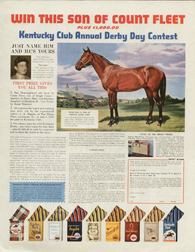 An eight-year-old with pigtails walks into a neighborhood drugstore in 1954 and asks to buy a package of pipe tobacco. It might have happened, but not for this eight-year-old, who blanched at the thought of being questioned.
An eight-year-old with pigtails walks into a neighborhood drugstore in 1954 and asks to buy a package of pipe tobacco. It might have happened, but not for this eight-year-old, who blanched at the thought of being questioned.
Instead, I stared furtively at a counter display which promised that I had a chance to win a Thoroughbred, if I sent in the best name for the colt, plus the wrapper from a package of Kentucky Club pipe tobacco.
Initiated in 1954, the annual Kentucky Club contest received close to a million entries by 1964. One year a bundle of entries (there was no limit on the number of one could submit, as long as each was accompanied by a wrapper) was sent in by a nun who, according to an article in the April 13, 1964 issue of Sports Illustrated, persuaded her pupils’ fathers to save their Kentucky Club wrappers for her.
Another contestant purchased 100 packages of Kentucky Club, tore off the labels so that he could submit 100 names, then gave the contents of the packages to a veterans hospital and claimed a charity deduction on his income tax return.
 “Prize” horses in the annual contest were two-year-olds selected by Ted Atkinson, the first active jockey to be inducted into Thoroughbred racing’s Hall of Fame. Atkinson’s mounts included racing giants such as Bold Ruler, Nashua and Tom Fool. Sires of prize horses ranged from Citation to Your Host to Count Fleet, and some of the horses went on to achieve modest success, like Aurecolt, the 1956 selection, who won his first start and $2,600. Others never made it to the post.
“Prize” horses in the annual contest were two-year-olds selected by Ted Atkinson, the first active jockey to be inducted into Thoroughbred racing’s Hall of Fame. Atkinson’s mounts included racing giants such as Bold Ruler, Nashua and Tom Fool. Sires of prize horses ranged from Citation to Your Host to Count Fleet, and some of the horses went on to achieve modest success, like Aurecolt, the 1956 selection, who won his first start and $2,600. Others never made it to the post.
While first prize in the contest included a colt, plus two choice seats and all expenses paid in Louisville for four days during the Kentucky Derby, there were a total of 500 prizes, including (second through tenth) hi-fi sets with “full concert realism,” and the remainder, 8-piece sets of English highball glasses decorated with a picture of that year’s prize colt.
Although it might be hard to imagine today, pipe smoking was trendy through 1970, when everyone from Bing Crosby, with his mellow voice and ever-present pipe, to Ronald Reagan endorsed tobacco, and pipe cleaners were something you purchased at the tobacco counter rather than a craft store, as today.
Pipe smoking began to decline in 1970, when cigarette and tobacco advertising was banned on television and radio, and print ads, and packages were required to carry the Surgeon General’s warning. The decline also spelled the end for the Kentucky Club Derby Day contest.
